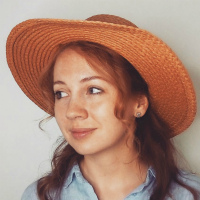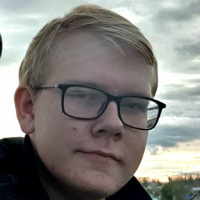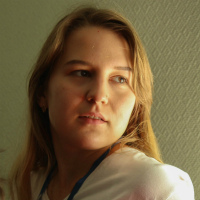‘Bashkir Kids Know How to Use a Bow and Arrow, Imams Keep Ancient Books, and Everybody Preserves the Cultural Traditions’
For 12 days, students and teachers of the HSE School of Asian Studies travelled across the Republic of Bashkortostan. The trip was organized as part of the Rediscover Russia project. HSE News Service spoke with participants of the trip about their immersion in Russian Islamic culture.
A group of 13 students of the Asian and African Studies programme set out from Moscow to Bashkortostan. The group was led by Irina Tsaregorodtseva, head of the expedition, and her deputy head, Valery Matrosov.

Irina Tsaregorodtseva
Associate Professor, School of Asian Studies
Traveling across Russia’s Islamic regions provides our students a good opportunity put the skills that they learn in our programme into practice. The trip helped the students become acquainted with local forms of Islam while visiting private collections to discover uncatalogued Arabic sources, which we now must document and partially translate. For instance, thanks to Bakhtigarey Armanshin, the imam of the mosque in Starochukurovo, the students had a chance to look through old manuscripts. Such documents are usually kept in museums, and it is not easy to access them. We were able to take photos of Arabic books in other areas of Bashkortostan, too. We are going to catalogue and document our findings.
HSE students visited mosques in seven Bashkir districts: Ufimsky, Chishminsky, Buraevsky, Yanaulsky, Baltachevsky, Tatyshlinsky, and Askinsky. Also, the expedition included a tour of the most famous Muslim monuments in the Chishminsky district: the Mausoleum of Huseynbek (a legend says that this enlightener from Bukhara introduced the ideas of Sufism in Bashkortostan) and the Mausoleum of Tur-Khan, supposedly a warrior of the Genghis Khan family.

Vladimir Tsekh
Third-year student, Asian and African Studies
Many tours are arranged for HSE students, but very few of them meet the needs of those who study the Middle East. Conversely, exploring Muslim monuments (including those in Russia) are of particular interest to us, as they are closely related to Islamic Studies, the Arabic language, and Arabic-script epigraphy.
The expedition gave me a chance to learn more about Muslim culture. While armchair orientalists are a phenomenon of the 19th century, modern researchers have to do field work. This was the first time I had interviewed people and analyzed some real Arabic-script sources.
.
In Bashkortostan, students collected information by interviewing Islamic clerics and ordinary Muslims. The interviews helped students understand that local Islamic culture is diverse, but not radical.

Elizaveta Naumova
Fourth-year student, Asian and African Studies
I have been thinking of studying anthropology of Islam—in particular, Islam in Russia—for a while. I have tried my hand at interviewing people and learned that many Russians seem interested in Islamic culture. I would love to do research in this field.
One of my most vivid memories is of visiting the Tur-Khan Mausoleum. The road was so bad that our bus got stuck, and we had to walk up the hill in deep mud and against strong wind. But what spectacular views we could see once we reached the top of the hill!
Another thing I remember very well is how we met local kids in Kartkisyake Askinsk. They were so enthusiastic, so special. They taught us how to shoot with a bow and arrow, they talked about their life, and they showed us their school and mosque. We were thrilled to work with ancient books kept by imams. The Bashkir people carefully preserve their cultural heritage.
The School of Asian Studies expedition was organized as part of the Rediscover Russia project. The project was launched at HSE University two years ago. Since then 170 expeditions have been organized to explore 62 Russian regions. Over 2,000 students and about 200 teachers and researchers of HSE University have taken part in them.
Sergey Seleev
Project Team Manager, Office for Educational Innovations and Short-Term International Programmes
The Rediscover Russia project is important, because it helps immerse students in the reality that they study. That is how we can bridge the fundamental gap between theoretical knowledge and real-world competence, i.e., between the research and the real lives of people in regions of our huge country. It is not only HSE Moscow that takes part in the project. Campuses of other universities organized twelve of the 77 expeditions in 2019. This year, HSE students have already visited 27 regions of Russia — from Kaliningrad to Kamchatka and Primorsky Krai. By the end of this year, more expeditions will have set out to the Central Federal District (Belgorod and Kursk Oblasts) and the Republic of Sakha (Yakutia).
Irina A. Tsaregorodtseva
Associate Professor at the School of Asian Studies
Valery Matrosov
Visiting Scholar at the Faculty of World Economy and International Affairs
Sergey Seleev
Project Team Manager at the Office for Educational Innovations and Short-Term International Programmes


.png)